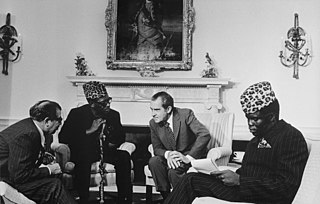Related Research Articles

The Antarctic Treaty and related agreements, collectively known as the Antarctic Treaty System (ATS), regulate international relations with respect to Antarctica, Earth's only continent without a native human population. It was the first arms control agreement established during the Cold War, designating the continent as a scientific preserve, establishing freedom of scientific investigation, and banning military activity; for the purposes of the treaty system, Antarctica is defined as all the land and ice shelves south of 60°S latitude. Since September 2004, the Antarctic Treaty Secretariat, which implements the treaty system, is headquartered in Buenos Aires, Argentina.

The Kellogg–Briand Pact or Pact of Paris – officially the General Treaty for Renunciation of War as an Instrument of National Policy – is a 1928 international agreement on peace in which signatory states promised not to use war to resolve "disputes or conflicts of whatever nature or of whatever origin they may be, which may arise among them". The pact was signed by Germany, France, and the United States on 27 August 1928, and by most other states soon after. Sponsored by France and the U.S., the Pact is named after its authors, United States Secretary of State Frank B. Kellogg and French foreign minister Aristide Briand. The pact was concluded outside the League of Nations and remains in effect.

A treaty is a formal, legally binding written agreement concluded by sovereign states in international law. International organizations can also be party to an international treaty. A treaty is binding under international law.

The Second London Naval Treaty was an international treaty signed as a result of the Second London Naval Disarmament Conference held in London. The conference started on 9 December 1935 and the treaty was signed by the participating nations on 25 March 1936.

The Treaty of San Francisco, also called the Treaty of Peace with Japan, re-established peaceful relations between Japan and the Allied Powers on behalf of the United Nations by ending the legal state of war, military occupation and providing for redress for hostile actions up to and including World War II. It was signed by 49 nations on 8 September 1951, in San Francisco, California, at the War Memorial Opera House. Italy and China were not invited, the latter due to disagreements on whether the Republic of China or the People's Republic of China represented the Chinese people. Korea was also not invited due to a similar disagreement on whether South Korea or North Korea represented the Korean people.

The Treaty for the Prohibition of Nuclear Weapons in Latin America and the Caribbean is an international treaty that establishes the denuclearization of Latin America and the Caribbean. It was proposed by Adolfo López Mateos, the President of Mexico, and promoted by the Mexican diplomats Alfonso García Robles, Ismael Moreno Pino and Jorge Castañeda as a response to the Cuban Missile Crisis (1962). For his efforts in favor of the reduction of nuclear weapons, García Robles was awarded the Nobel Peace Prize in 1982.
Congolese Civil War or Congo War may refer to any of a number of armed internal conflicts in the present-day countries of the Democratic Republic of the Congo and the Republic of the Congo in Central Africa.

The 1926 Slavery Convention or the Convention to Suppress the Slave Trade and Slavery is an international treaty created under the auspices of the League of Nations and first signed on 25 September 1926. It was registered in League of Nations Treaty Series on 9 March 1927, the same day it went into effect. The objective of the convention is to confirm and advance the suppression of slavery and the slave trade and was extended in 1956 with the Supplementary Convention on the Abolition of Slavery, under the auspices of the United Nations.

Shaba I was a conflict in Zaire's Shaba (Katanga) Province lasting from 8 March to 26 May 1977. The conflict began when the Front for the National Liberation of the Congo (FNLC), a group of about 2,000 Katangan Congolese soldiers who were veterans of the Congo Crisis, the Angolan War of Independence, and the Angolan Civil War, crossed the border into Shaba from Angola. The FNLC made quick progress through the region because of the sympathizing locals and the disorganization of the Zairian military. Travelling east from Zaire's border with Angola, the rebels reached Mutshatsha, a small town near the key mining town of Kolwezi.

The Bonn–Paris conventions were signed in May 1952 and came into force after the 1955 ratification. The conventions put an end to the Allied occupation of West Germany.

Mobutu Sese Seko's foreign policy emphasized his alliance with the United States and the Western world while supposedly maintaining a non-aligned position in international affairs. Mobutu ruled the Republic of the Congo and then Zaire as president for 32 years, from 1965 to 1997.
The Lusaka Protocol, initialed in Lusaka, Zambia on 31 October 1994, attempted to end the Angolan Civil War by integrating and disarming UNITA and starting national reconciliation. Both sides signed a truce as part of the protocol on 15 November 1994, and the treaty was signed on 20 November 1994.
Shaba II was a brief conflict fought in the Zairean province of Shaba in 1978. The conflict broke out on 11 May 1978 after 6,500 rebels from the Congolese National Liberation Front (FNLC), a Katangese separatist militia, crossed the border from Angola into Zaire in an attempt to achieve the province's secession from the Zairian regime of Mobutu Sese Seko. The FNLC captured the important mining town of Kolwezi.

The London and Paris Conferences were two related conferences held in London and Paris during September–October 1954 to determine the status of West Germany. The talks concluded with the signing of the Paris Agreements, which granted West Germany some sovereignty, ended the occupation, and allowed its admittance to NATO. Furthermore, both West Germany and Italy joined the Brussels Treaty on 23 October 1954. The Agreements went into force on 5 May 1955. The participating powers included France, the United Kingdom, Belgium, the Netherlands, Luxembourg, West Germany, Italy, Canada, the United States, and remaining NATO members.
The protocol for the reconstruction of Austria was an agreement concluded on 4 October 1922 between the government of Austria and the governments of the United Kingdom, France, Italy and Czechoslovakia, which provided for a gradual reconstruction of the Austrian economy under League of Nations supervision. It was registered in the League of Nations Treaty Series on the same day. The Spanish government acceded to the protocol on 3 November 1922.
The Byrd–Hagel Resolution was a United States Senate Resolution passed unanimously with a vote of 95–0 on 25 July 1997, sponsored by Senators Chuck Hagel and Robert Byrd. The resolution stated that the US should not sign a climate treaty that would 'mandate new commitments to limit or reduce greenhouse gas emissions for the Annex I Parties, unless ...[it]... also mandates new specific scheduled commitments to limit or reduce greenhouse gas emissions for Developing Country Parties within the same compliance period', or would result in serious harm to the economy of the United States. This effectively prohibited the US from ratifying the Kyoto Protocol.

The Budapest Memorandum on Security Assurances comprises three substantially identical political agreements signed at the OSCE conference in Budapest, Hungary, on 5 December 1994, to provide security assurances by its signatories relating to the accession of Belarus, Kazakhstan and Ukraine to the Treaty on the Non-Proliferation of Nuclear Weapons (NPT). The three memoranda were originally signed by three nuclear powers: Russia, the United States and the United Kingdom. China and France gave somewhat weaker individual assurances in separate documents.

The Southern Common Market, commonly known by Spanish abbreviation Mercosur, and Portuguese Mercosul, is a South American trade bloc established by the Treaty of Asunción in 1991 and Protocol of Ouro Preto in 1994. Its full members are Argentina, Bolivia, Brazil, Paraguay and Uruguay. Venezuela is a full member but has been suspended since 1 December 2016. Chile, Colombia, Ecuador, Guyana, Panama, Peru, and Suriname are associate countries. Bolivia became a full member on 8 July 2024.

The Greek–Serbian Alliance of 1913 was signed at Thessaloniki on 1 June 1913, in the aftermath of the First Balkan War, when both countries wanted to preserve their gains in Macedonia from Bulgarian expansionism. The treaty formed the cornerstone of Greek–Serbian relations for a decade, remaining in force through World War I until 1924.
Capital punishment in Chile is legally sanctioned, albeit with significant limitations. Since its abolition for civilian offenses in 2001, its application has been restricted to military personnel convicted of war crimes and crimes against humanity committed during wartime. This places Chile among the seven countries globally that have abolished capital punishment solely for ordinary crimes.
References
- ↑ Osmanczyk, Edmund Jan (2002). Encyclopedia of the United Nations and International Agreements. p. 96.
- ↑ Coleman, Gordon C (19 April 1982). "US Foreign Policy to Zaire - Should it Change?" (PDF). U.S. Army War College: 11 – via Defense Technical Information Center.